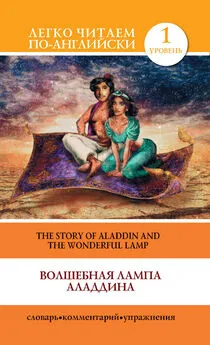Jean Plaidy - To Hold the Crown: The Story of King Henry VII and Elizabeth of York
- Название:To Hold the Crown: The Story of King Henry VII and Elizabeth of York
- Автор:
- Жанр:
- Издательство:неизвестно
- Год:неизвестен
- ISBN:нет данных
- Рейтинг:
- Избранное:Добавить в избранное
-
Отзывы:
-
Ваша оценка:
Jean Plaidy - To Hold the Crown: The Story of King Henry VII and Elizabeth of York краткое содержание
To Hold the Crown: The Story of King Henry VII and Elizabeth of York - читать онлайн бесплатно полную версию (весь текст целиком)
Интервал:
Закладка:
“Think not of money now, dear mother. Rest your voice.”
The Queen Dowager smiled and nodded. “Sit by my bed, dear child,” she said. “Hold my hand. I loved you all dearly . . . far more than I ever showed you.”
“We were so happy when we were children, dear mother. You and our father were like a god and goddess to us. We thought you perfect.”
“Neither of us was that, dear child, but whatever else we were we were loving parents.”
Seventeen-year-old Anne arrived next with her sisters Catherine and Bridget the youngest who had come from her convent at Dart-ford to be at her mother’s bedside. Anne was a source of anxiety to the Queen Dowager because she was seventeen years old, ripe for marriage. Who would look after her now? Elizabeth the Queen must do that. Catherine was eleven; there was time yet for her. Bridget was the only one whose future was assured for she was preparing herself to take the veil.
Elizabeth looked at them through misty eyes. Her beloved children. Was it only eleven years ago that Edward had been alive and they had rejoiced at the birth of this daughter?
She held out her hands to them. The younger girls looked at her with alarmed dismay. They had never seen her like this before, poor children, thought Cecilia. She looks so ill. I really believe this is the end.
“Bless you, dear daughters,” said the Queen Dowager. “I think I shall be gone before Whitsuntide.”
“Where shall you go?” asked Catherine.
“To Heaven, I hope, sweet child.”
Then the little girls began to weep and Bridget knelt down by the bed and prayed as she had seen the nuns do.
“Good-bye, my dear ones. Remember this. No parents ever loved their children more than the King and I loved you. Sad events have fallen upon us but we must make the best of them. . . .Your sister, the Queen, will care for you.”
Catherine said: “Dear mother, I think I should send for the priest.”
On the following day Elizabeth Woodville died.

It was Whit Sunday when the Queen Dowager’s body was taken along the river to Windsor.
There was a very simple funeral. Only the priest of the college received the coffin, and some Yorkists who had come out to see the end of great Edward’s Queen murmured together that such a hearse was like those used for the common people.
Was this the way in which King Henry honored the House of York? What was all this talk of the roses entwining—the uniting of white and red—when a Yorkist queen was buried with no more ceremony than the humblest merchant?
On the following Tuesday the daughters of Elizabeth Woodville—Catherine, Anne and Bridget—came to Windsor. Cecilia was at the time unwell but her husband Lord Wells came in her stead.
The burial itself was performed with as little expense as possible. Even black clothes had not been provided for those who had been engaged to sing the dirges and they appeared in their working garments. This was unheard of for a royal personage—and a queen at that.
There was a great deal of murmuring. “The Queen should have provided proper mourning for her mother,” said many.
“The Queen has no power and the King is a miser.”
But at least she was buried where she would have wished to be—in St. George’s Chapel beside her husband King Edward the Fourth.

Henry was relieved. He had always been uneasy concerning his mother-in-law. He had never trusted her and in his suspicious mind he saw the possibilities of her being at the center of an intrigue to drive him from the throne. The animosity between Elizabeth Woodville and the Countess of Richmond had been more than feminine bickering. The Countess had seen danger in the woman, for like her son’s, her own life had prepared her to look for trouble.
But now Elizabeth Woodville was dead; the Queen was delivered of another child—a girl, Elizabeth, this time and delicate like Arthur. The King was thankful that he had the robust Henry and Margaret to show they could get healthy children. Four was a goodly number and the Queen was still young, and if a little delicate that did not seem to impair her ability to bear children.
He fancied too that on the continent they were beginning to regard him as a formidable figure in world politics. The King of France had just shown a healthy respect for him; and he was delighted because he was going to be spared the necessity of going to war.
He had been drawn into an agreement with the Holy Roman Emperor Maximilian, and Isabella and Ferdinand. He was particcularly eager to have the friendship of the Spanish monarchs because he saw through an alliance with them a bulwark against the perennial enemy, the French, and he was still hoping for a marriage between their daughter Katharine and his own Arthur. He hated war, seeing it as senseless and costly, but he had come to the point where he had found it impossible to back out.
Dudley and Empson had said that it would be necessary to raise the money from the people. It was a strange and sobering fact that while the people were reluctant to pay taxes in order to increase industry they were ready to do so to go to war, and there had been many a squire who had sold part of his estates in order to equip himself for war. Why? Did he think the spoils he would bring back would compensate him, or was it just the lust for conflict? War was no good to anyone, was Henry’s theory; and he could not understand why when this had been so well proved through the ages, men still wanted to indulge in it.
But because it had been impossible to evade it he had landed an army in France and laid siege to Boulogne, and although this had not proved outstandingly successful as the town was very well fortified, the French King sued for peace—offering to pay Henry’s expenses and a sum of money if he would retire from the field.
The acquisition of money had always been a pleasure to Henry and to get it without the loss of men or equipment seemed to him a heaven-sent opportunity.
There were people to murmur against it, for operations like this, while so profitable to the leaders, were scarcely so to those who had sold part of their estates to enable them to join the expedition and then returned empty-handed.
However Henry was delighted. He accepted the offer, made peace and came back to England.
It was while he was congratulating himself with those devoted and efficient statesmen Dudley and Empson, that he received news which shattered his peace.
A young man had presented himself to the peers of Ireland with the story that he was Richard Duke of York, second son of King Edward the Fourth whose disappearance with his brother had caused such speculation some years before.
His brother—who was in truth Edward the Fifth—declared this young man, had been murdered. But he, the second son, had escaped. He had called himself Peter Warbeck and had remained in obscurity until the time was opportune for him to take the throne.
He was now gathering together an army—he had the support of some influential people including the Duchess of Burgundy—and was coming to take the throne from the usurper Henry Tudor who now occupied it.
Henry’s peace of mind had completely deserted him. Here was another of them. It was lies . . . lies. None knew that better than he did.
Richard of York—the second of the Princes in the Tower—was dead, he knew that. But how could he explain to the country why he was so sure?
And was this another Lambert Simnel? No . . . indeed not. Lambert Simnel had been doomed to failure from the first.
Something told Henry that this was a far more serious matter, and he knew that his enemies would be preparing to strike at him.
He had constantly to look about him for where the blows would come.
He had not thought that it could be through one of the little Princes in the Tower.
Perkin
 eter had been ten years old when the Framptons came to Flanders. He was a bright boy, tall and handsome with abundant golden hair and very alert blue eyes. His father, John Warbeck, was a customs official and his mother Katharine was a clever woman. They had several children, otherwise they would have been able to do more for Peter; as it was he was put into several noble houses there to learn how to be a good squire.
eter had been ten years old when the Framptons came to Flanders. He was a bright boy, tall and handsome with abundant golden hair and very alert blue eyes. His father, John Warbeck, was a customs official and his mother Katharine was a clever woman. They had several children, otherwise they would have been able to do more for Peter; as it was he was put into several noble houses there to learn how to be a good squire.
After the Battle of Bosworth when there was a turnabout in England and the House of Plantagenet, which had reigned since Henry the Second came to the throne in the year 1154, was defeated and replaced by the Tudors, among those who felt it was necessary to leave England were Sir Edward and Lady Frampton. They were staunch supporters of the House of York—so much so that they were committed to help bring that House back to power if it was at all possible for them to do so.
When they settled at Tournay in Flanders they had been able to bring much of their wealth with them and they were made very welcome and took several people into their household.
Peter’s good looks and amazingly pleasant manners secured him a place and very soon he became a favorite of Lady Frampton.
“You remind me,” she told him, “of our great King Edward. He was exceptionally handsome. The people loved him. It was the greatest tragedy that could befall England when he died. And, Peter, you have a look of him.”
Peter was flattered and was eager to discover all he could about the handsome King to whom he bore such a strong resemblance.
Lady Frampton was always ready to talk to him. When she rode out Peter would act as her groom and she often sent for him in the house so that she could chat to him.
It was very pleasant for her to have such an attentive audience and she was only too glad to speak of the past because the present seemed so hopeless.
“If only,” she was fond of saying, “by some stroke of good fortune, we could drive the usurping Tudor from the throne.”
Peter asked a great many questions about the late King Edward to whom he bore such a resemblance.
“I suppose,” said Lady Frampton, “the King was in Flanders at some time. I’d be ready to swear, Peter, that he was interested in some Flemish maid and that you were the result.”
“My mother is a very virtuous wife.”
“I know . . . I know. But sometimes those whom we believe to be our parents are not. You understand what I mean, Peter? Suppose the lady you think of as your mother was asked to care for a child . . . a child who came rather mysteriously into the world. Suppose that child was the result of a liaison between some persons who dared not divulge their identity.”
If it was an absurd supposition, Lady Frampton refused to accept the fact. Edward had many bastards but he had never made any secret of the fact. He had no one to answer to and even his Queen had been aware of his activities in that field and knew she must turn a blind eye to them.
Still, it was interesting to talk and the boy was very pleased at the prospect of having a king for a father. He wanted to know about the sons Edward had had by the Queen and why they didn’t rise up and take the throne away from this obnoxious Tudor.
“They disappeared. . . .It is most mysterious for none so far as I have heard have an answer to the question. Richard the Third declared the children illegitimate. The two boys were put into the Tower of London. They have never been seen since.”
“Did King Richard murder them?”
Lady Frampton was indignant. “Richard was a good Yorkist king—brother of Edward. He would never murder his own nephews. It was the Tudor. You see while they lived they were a menace to him. The elder of the boys was Edward the Fifth; his younger brother was Duke of York. And if Edward died there was still Richard of York to come before this Tudor.”
Читать дальшеИнтервал:
Закладка:










